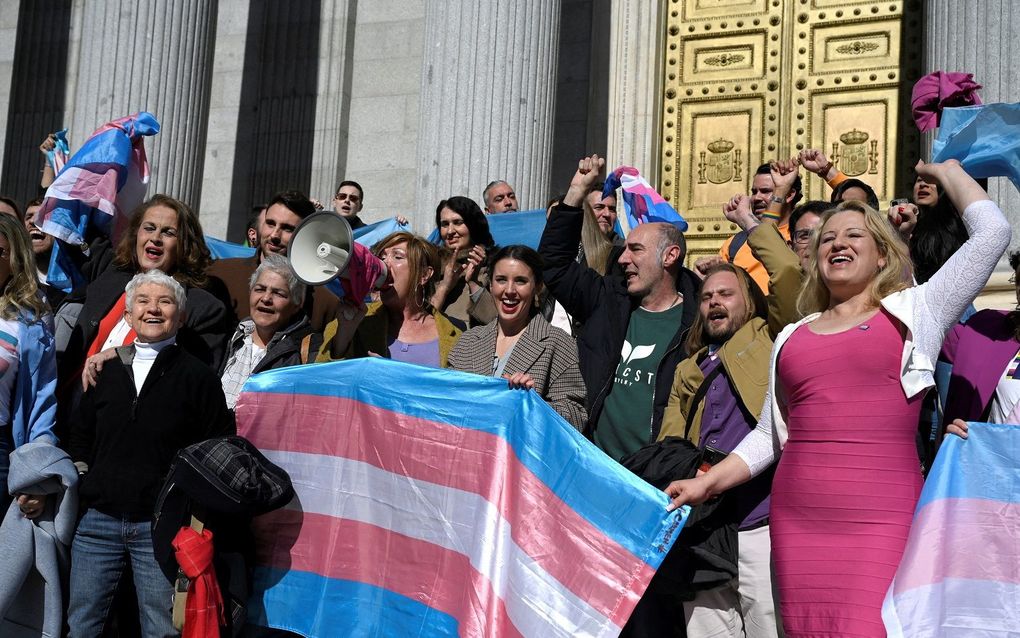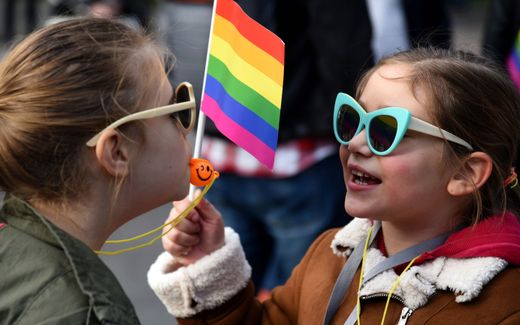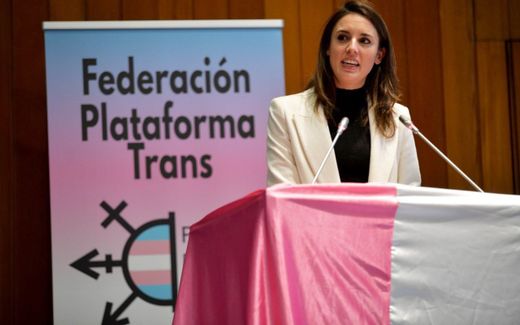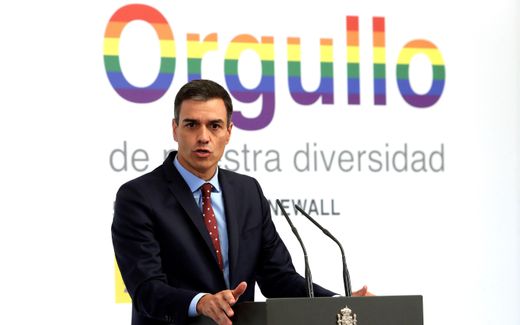Spain approves controversial LGBT and abortion laws

Activist Carla Antonelli (L), activist Boti Garcia (2L), Spain's LGTBI+ President Uge Sangil (3L), Spain's Minister for Equality Irene Montero (C) and LGTBI+ member Niurka Gibaja (R) celebrate in front of the Spanish Congress, in Madrid on February 16, 2023 after the 'transgender ley' was voted upon. Photo AFP, Oscar del Pozo
Southern Europe
Spain's parliament on Thursday passed legislation which makes it easier for trans people to change their gender, expands access to abortion procedures and grants menstrual leave to women suffering from severe period pain.
It was a historic day in Spain on Thursday. Inside the parliament, politicians approved several controversial laws. Outside, LGBT activists were having a party.
Before the new laws passed, adults in Spain wanting a gender change required a medical report proving their gender dysphoria. For minors, this also included mandatory judicial authorisation.
The new law deletes many hurdles for people aged 16 years or older. Minors aged 14 and 15 can apply for gender change with their parents' approval, and for minors aged 12 and 13, a judge's permission is still required.
The bill also bans so-called conversion therapy and provides state support for lesbians and single women seeking IVF treatment, reports El Financiero.
Enshrined
On Thursday, the parliament also approved a law allowing 16 and 17-year-olds to undergo an abortion without parental consent. Furthermore, the new abortion law also enshrines that abortions must be able to take place in a public hospital so that patients do not have to resort to private clinics. Currently, 80 per cent of abortions in Spain are still done in such clinics because doctors in hospitals often refuse to perform them for religious reasons.

The European pro-life federation One of Us denounces the decisions of the Spanish parliament. "We denounce the elimination of the unborn child and the woman's abandonment. There is no right to kill; there is a right to live."
Feminist
As the first country in Europe, Spain also introduced paid menstrual leave. For example, those who suffer severe pain during their period may call in sick for this. Not the employer but the social care system bears the cost for this. As with medically paid leave, however, a doctor must approve this. It also stipulates that schools and prisons must offer free menstrual products.
The plans come from the minister for equality, progressive politician Irene Montero, who has held the post since 2020. Since that year, the country has had a coalition government of Social Democrats and the radical Left. On Twitter, Montero welcomed the changes. She spoke of a "historic day for feminist progress".
Related Articles







